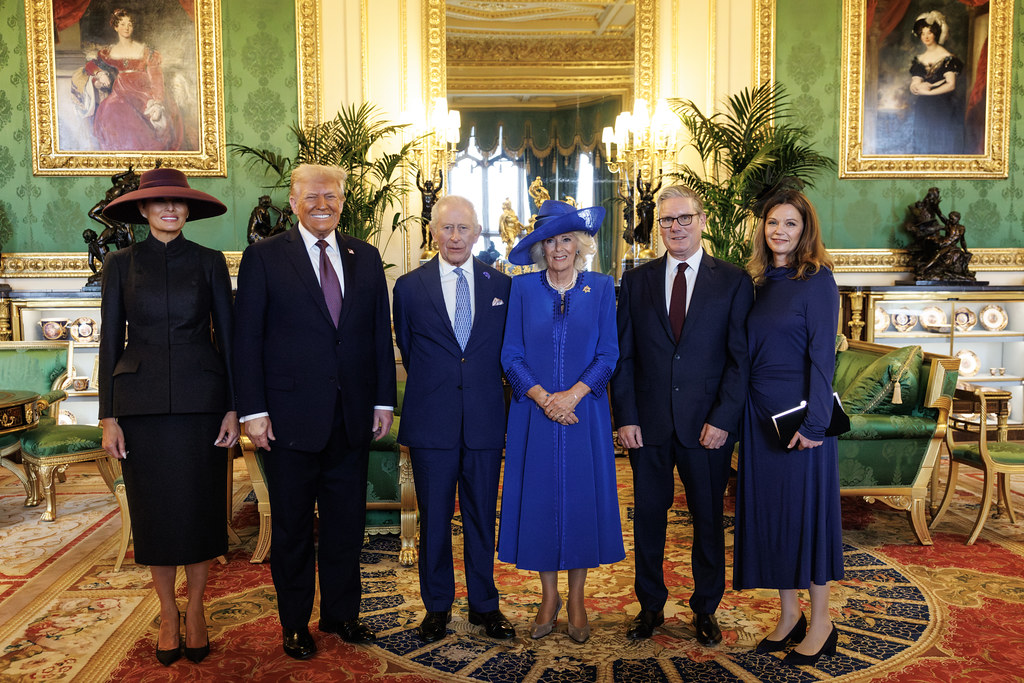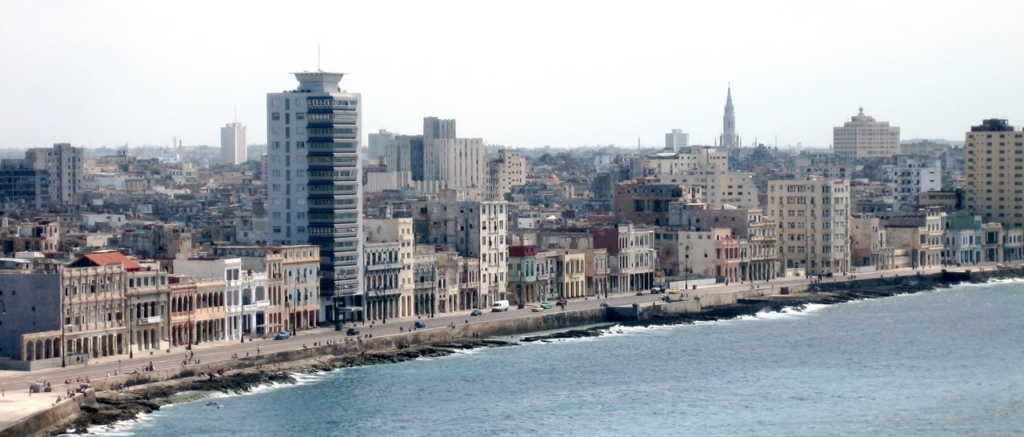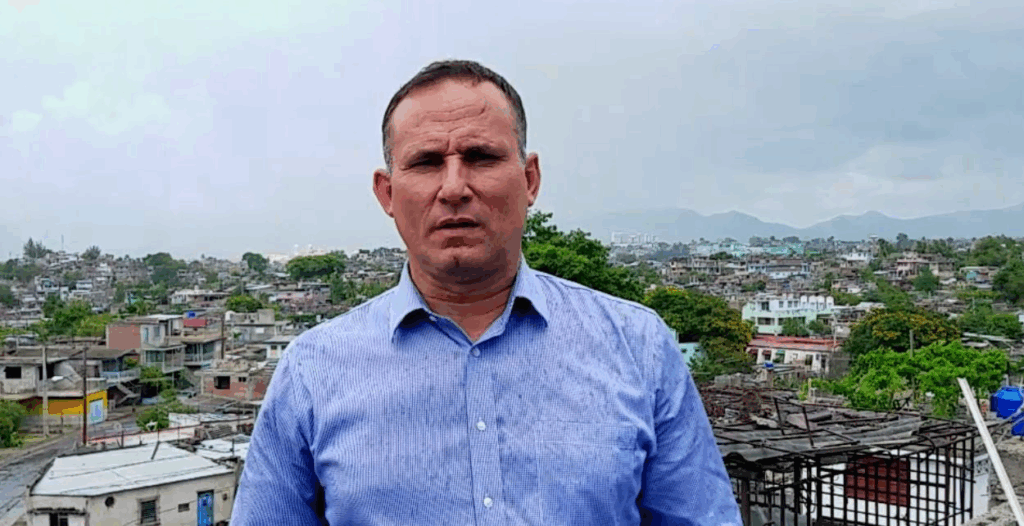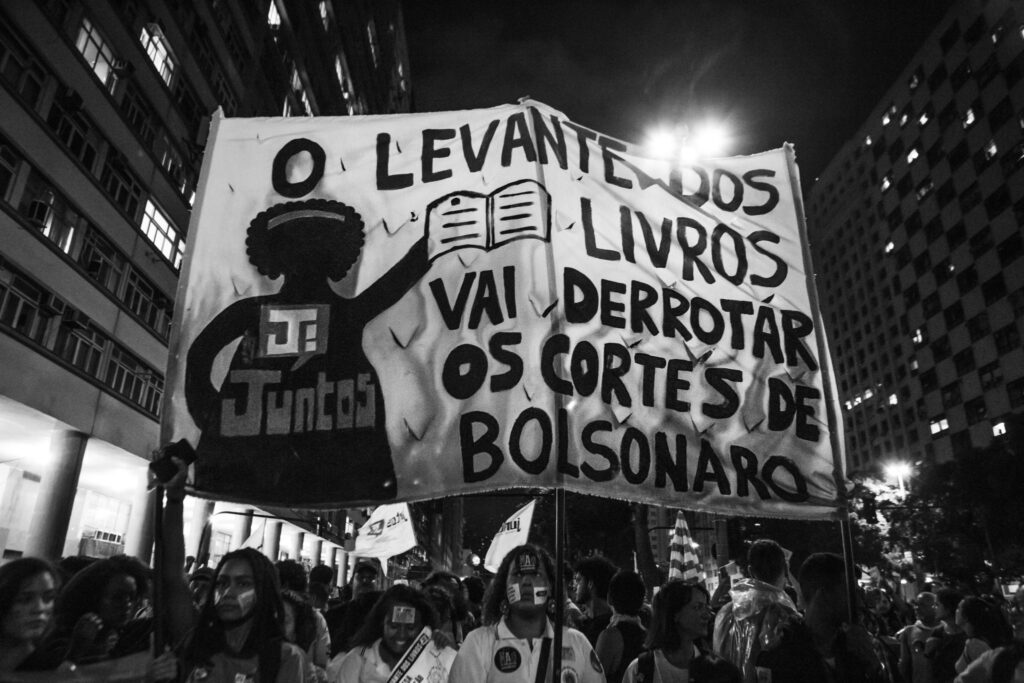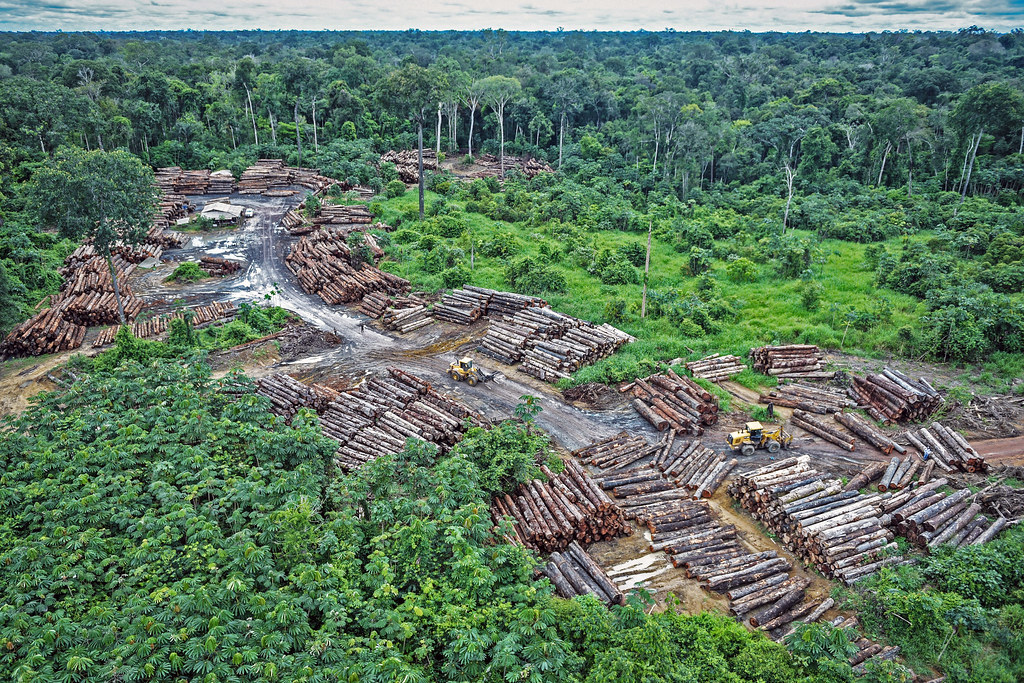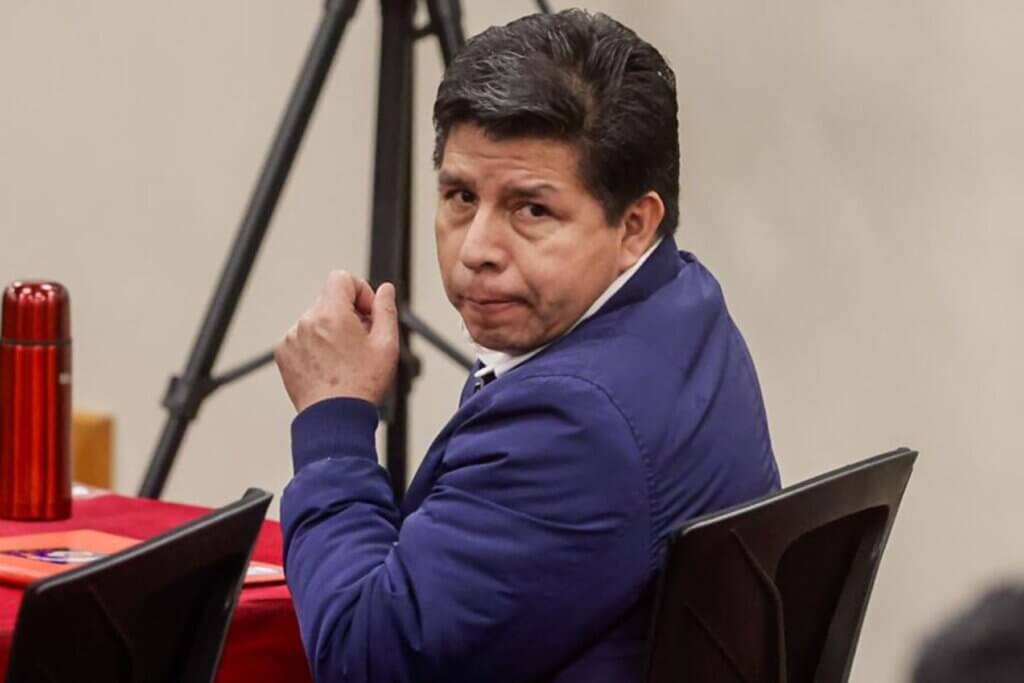U.S. President Donald Trump became the first president in American history to make two formal state visits to the United Kingdom last Tuesday.
Trump’s second state visit provoked significant outcry as the Stop Trump Coalition, a group comprising over 50 unions and charities, organized a march through Central London to protest the U.S. leader’s visit. According to London’s Metropolitan Police, 5,000 people attended the demonstration.
Representatives of the UK-based Cuba Solidarity Campaign (CSC) were amongst those marching through the British capital on Wednesday.
The CSC describes itself as “a British organization that campaigns against the inhumane and illegal 62 year old blockade of Cuba, for an end to the US occupation of Cuban land at Guantanamo Bay, and to defend the Cuban people’s right to be free from foreign intervention.”
According to the organization’s website, the CSC is a “non-party political NGO … [whose] supporters include members of the [British] public, trade unions, MPs, community, legal, cultural and educational groups.”
The Cuban National News showed images of the CSC protestors in London with placards saying “Hands Off Cuba”, the name of a campaign launched by the CSC in the early 2000s to “build the widest possible alliance against US aggression … [and pre-empt] any possibility that a UK government will support any US military aggression against the island – as was done over Iraq.”
These images, according to the Cuban national broadcaster, reflect “the unwavering support of the British people for the sovereignty of the island [Cuba] and their demand to end the unjust policies that have affected our nation for so long.”
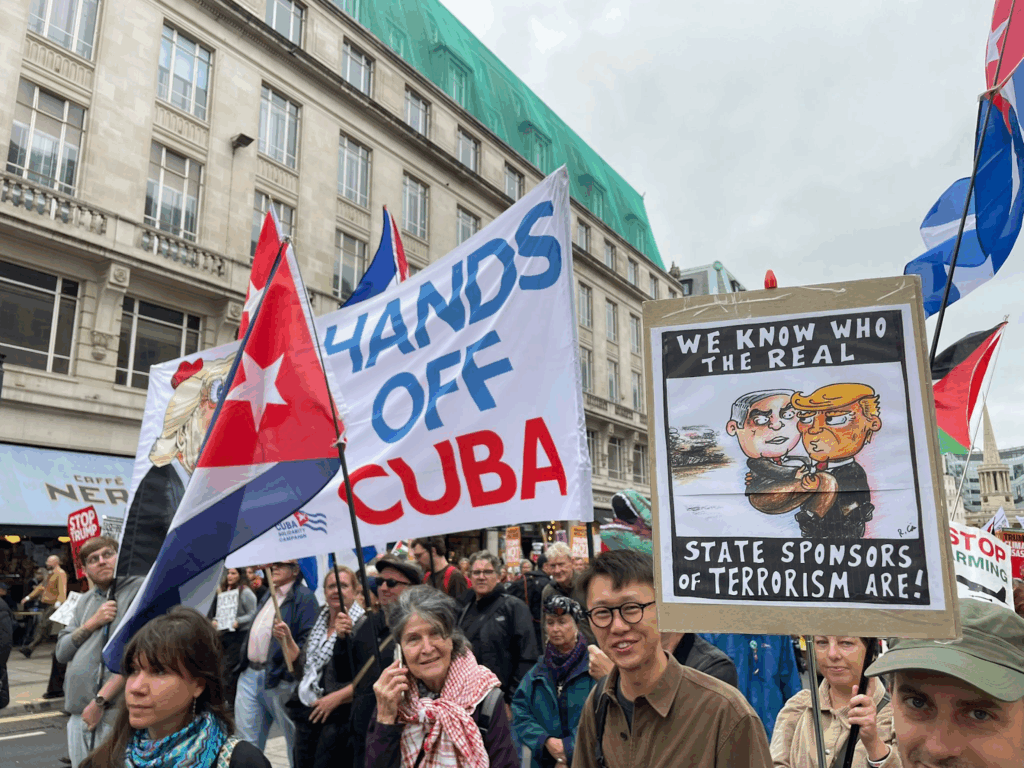
Image Source: Cuba Solidarity Campaign via X
Robert Miller, Director of the CSC, told Latin America Reports that CSC campaigners marched in London “to send a message to Trump and the United States that we demand that the United States respect Cuba’s sovereignty and stop interfering in Cuba’s affairs”.
Miller specified the demands of the CSC demonstrators: “we demand that the United States … end the illegal blockade of Cuba, end the sanctions against Cuba [and] remove Cuba from the ridiculous US unilateral list of so-called State Sponsors of Terrorism”.
The United States has maintained a comprehensive trade embargo on Cuba since 1962, meaning that U.S. exports to Cuba and imports from Cuba are prohibited unless subject to special exemptions.
The CSC refers to the trade embargo as a blockade, or “bloqueo”, as they argue that “an embargo implies a legal, territorial arrangement which prohibits trade with a particular country. In contrast, a blockade goes beyond a legal, territorial arrangement and is applied extra-territorially – affecting Cuba’s ability to trade with other countries too.”
The Cuban Government also calls the trade embargo a “blockade”, deeming it to be “genocidal” and “the most comprehensive, complete and prolonged system of unilateral and extraterritorial coercive economic measures ever applied against any nation.”
However, various sources dispute this nomenclature: Daniel Funke, reporting for American news broadcasting company USA Today, argues that “the embargo is not technically a blockade … [because] it doesn’t prevent the island nation from trading with other countries or non-American companies.”
Nevertheless, Funke recognizes that embargo has a “chilling effect” for Cuba’s non-American trading partners as “companies that engage in transactions in U.S. dollars could also be subject to the provisions of the embargo … provisions [which] are disincentives for non-U.S. companies”. Nonetheless, Funke argues that disincentivisation does not constitute “a legally binding prohibition on foreign trade with Cuba”.
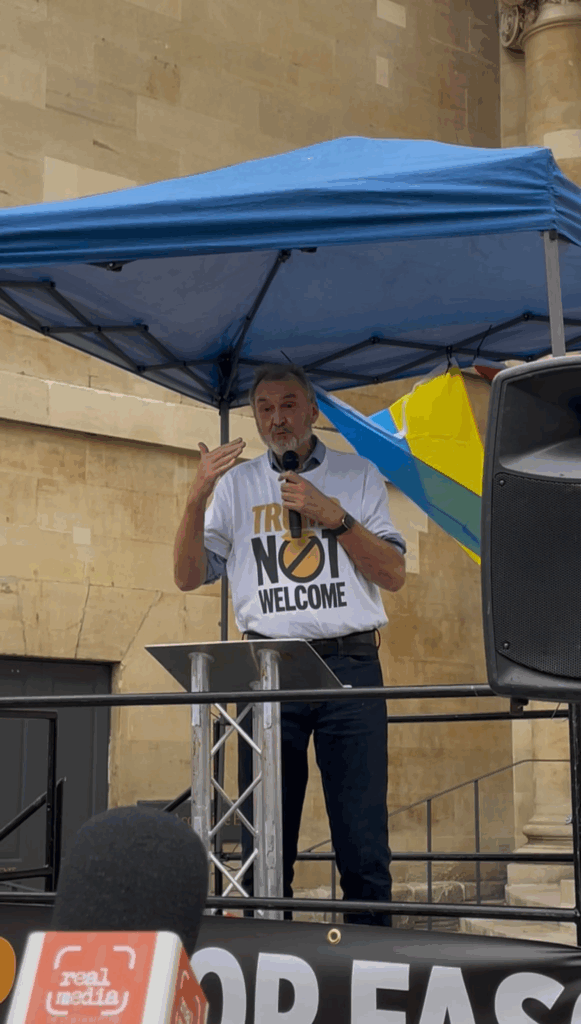
Image Source: Kevin Courtney via X
Nomenclature aside, the United Kingdom has consistently voted in favor of an end to the “economic, commercial and financial embargo imposed by the United States of America against Cuba” at the UN despite the much-vaunted “special relationship” between the two English-speaking nations.
However, Miller accuses the U.K. government of being “effectively complicit in the blockade as they only oppose the blockade in words and without any concrete actions”. Miller argues that the “U.S. blockade is extraterritorial and threatens countries, companies and individuals around the world who want normal relations with Cuba. We believe that the British Government should do more to protect U.K. companies who want to trade with Cuba.”
When asked about the undemocratic nature of Cuba – the Caribbean nation is a one-party state ruled by the Communist Party of Cuba (PCC) – Miller commented that “Cuba is an independent and sovereign nation. We believe that the people of Cuba … must be free to decide their own internal affairs without outside interference. If the US were actually interested in human rights and freedoms, it would end its illegal blockade, which causes shortages in every sphere of Cuban life, including health and education services, fuel, food etc”.
Various human rights groups have expressed concern about the lack of freedom in Cuba. Amnesty International, in the Cuba section of their 2024-2025 State of the World’s Human Rights Report, disclosed that “arbitrary arrests and the criminalization of activists, human rights defenders, journalists and protesters persisted.”
Reporters Without Borders also reports that “Cuba remains, year after year, the worst country for press freedom in Latin America. The Constitution states that the media are the property of the State, making journalism – outside of the official press – de facto clandestine.”
The NGO warned that “arrests, arbitrary detentions, threats of imprisonment, persecution and harassment, illegal raids on homes, and the confiscation and destruction of equipment … [await] journalists who do not toe the Cuban Communist Party line”.
The Cuban embassy in the United Kingdom expressed its gratitude to CSC campaigners attending the march on its social media page, hailing the campaigners’ “commitment to justice” and their importance “in the fight for a more just and humane international order.”
Furthermore, the embassy lauded the campaigners’ calls “to remove Cuba from the [American] state sponsors of terrorism list”, a reference to the reinstatement of Cuba’s official status as a state sponsor of terrorism by the Trump administration shortly after the U.S. President’s second inauguration. Miller describes this reinstatement as “an embarrassment for the United States”, arguing that “there is no justification at any level for including Cuba on a list of terrorist countries”.
Featured Image: (From left to right) First Lady of the United States Melania Trump, U.S. President Donald Trump, King Charles III, Queen Camilla, UK Prime Minister Keir Starmer and his wife Victoria Starmer during the second state visit of President Trump to the UK
Image Credit: Number 10 via Flickr License: Creative Commons Licenses


